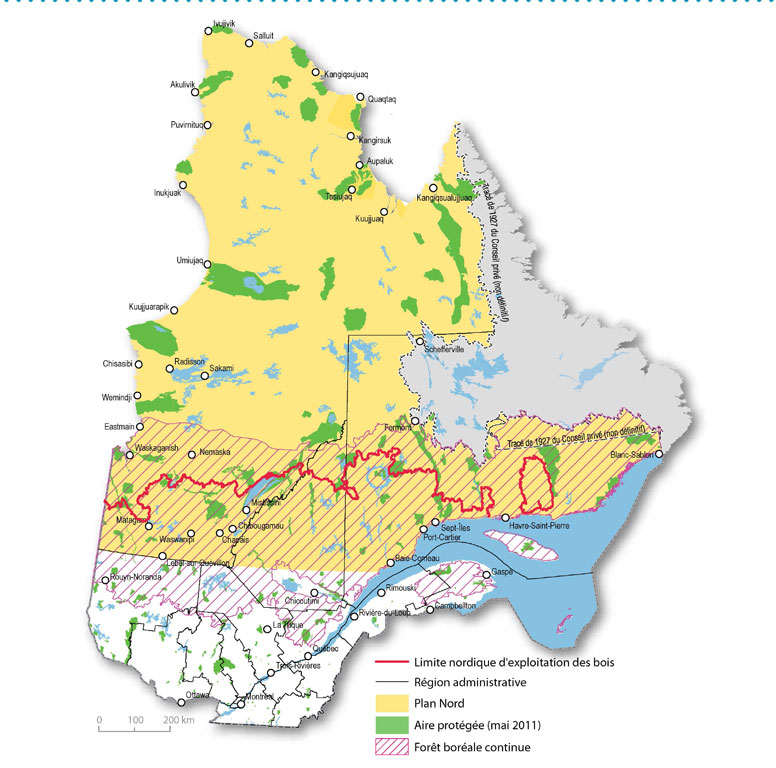International Union for Conservation of Nature Praises Quebec Conservation Commitments
Province Could be "A Guiding Light to the Globe"
Last week, the Pew Environment Group was at the International Union for the Conservation of Nature's (IUCN) World Conservation Congress in Jeju, South Korea, where the world's oldest and largest global environmental organization praised the environmental and social commitments made in the “Partners Declaration” of Quebec's "Plan Nord."
A resolution entitled “Acknowledging Quebec's advancement of conservation of the Boreal region” was adopted by more than 95 percent of the IUCN's civil society membership and 100 percent of its government membership. It praises a policy that calls for the protection of half of northern Quebec – nearly 600,000 square kilometers in the boreal forest region, an area about the size of France – from all industrial activity and that development in the other half will be “socially responsible, sustainable and environmentally sound.” Known as the Declaration of the Partners, a part of Quebec's Plan Nord, the policy was signed by the provincial government, representatives of industry, conservation organizations, aboriginal communities, and local municipalities, and commits that the policy will abide by agreements with the First Nations and the Inuit living in the territory and their ancestral rights; and maintain nation-to-nation discussions between the provincial government and the aboriginal nations.
A letter to the Pew Charitable Trusts on behalf of Pauline Marois, Quebec's premier-designate, pledges that the new government will uphold these commitments. According to the letter, “Northern Development will be in collaboration with northern populations, Aboriginal and Inuit, "and the government will “dedicate at least 50 percent of the Northern Territory to the protection of the environment and the preservation of biodiversity."
"Today's resolution recognizes that the implementation of these policies would establish Quebec as a world leader, and create a new model for other nations and States," said Susan Lieberman, Director of International Policy of the Pew Environment Group, who heads Pew's delegation to the Congress in Korea. "IUCN has more than 1,000 government and non-governmental members, and the overwhelming support for this motion highlights the uniqueness and global significance of the Plan Nord."
"Over the past several years in Quebec, hundreds of representatives of provincial, regional, and aboriginal governments, and the economic, social, community, and environmental sectors, have worked together to establish new ways of cooperating to balance economic development, social concerns and environmental protection in the North," said Pew's Mat Jacobson. “The Declaration of the Partners is the result of their hard work. It's a hard won and visionary set of policies that stand as a global high-water mark for sustainable development."
Plan Nord
Quebec's Plan Nord is a 25-year policy for the province's 1.2 square kilometer boreal region. It was the outcome of more than 60 meetings of working groups with nearly 450 participants. The Plan Nord also endorses extensive new mining and hydroelectric projects, as well as 80 billion Canadian dollars in public and private investments. Quebec's boreal region comprises 21 percent of Canada's boreal, the world's largest intact terrestrial ecosystem. The Canadian boreal stores more than 400 trillion pounds of carbon, more than any other terrestrial source in the world, and contains 25 percent of the world's wetlands and more surface water than any other continental-scale landscape.








